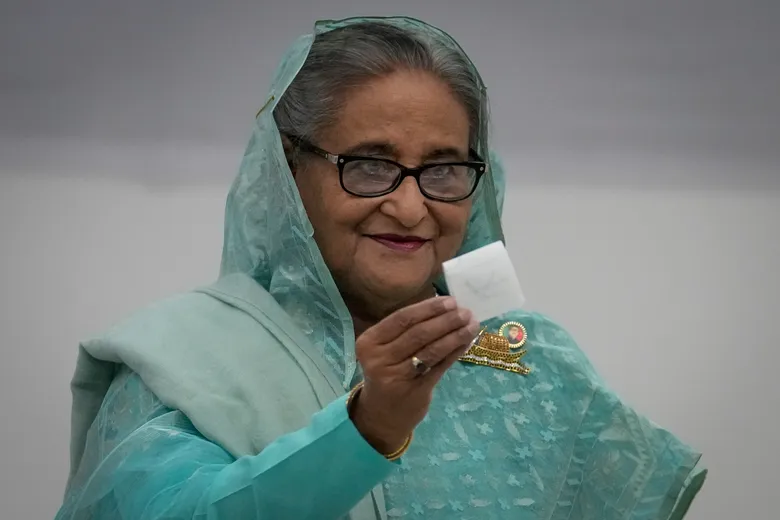Muhammad Kaleem Zahid
The Bangladesh general election of December 30, 2023, held under the specter of the main opposition Bangladesh Nationalist Party’s (BNP) boycott, presents a complex picture for critical evaluation. This decision casts a long shadow over the legitimacy and future of Bangladeshi democracy, revealing deep fractures in the political landscape and raising crucial questions about authoritarian tendencies and the viability of a functioning opposition.
The Boycott and its Implications:
The BNP’s boycott wasn’t merely a tactical maneuver; it stemmed from profound concerns about an unequal playing field. They accused the ruling Awami League (AL) of stifling dissent, manipulating electoral processes, and employing tactics to ensure an uncontested victory. This accusation rings true in several aspects. Hasina’s tenures have witnessed a decline in press freedom, increased crackdowns on political dissent, and allegations of vote rigging. The BNP’s absence undoubtedly raises red flags about the fairness and transparency of the poll.
Polarization and Its Perils:
This boycott has exacerbated the already stark polarization within Bangladeshi politics. With the two major parties refusing to find common ground, the political discourse has become increasingly antagonistic and uncompromising. This deep divide not only hinders healthy debate and policy-making but also risks inciting further unrest and political turmoil. The recent wave of anti-government protests and pre-election violence are worrying indicators of this simmering tension.
The Erosion of Democratic Norms:
The BNP’s boycott raises concerns about the very essence of democracy. A fundamental principle of a functioning democracy is the presence of a viable opposition that holds the government accountable and offers the electorate alternative visions. With the BNP out of the picture, the AL faces minimal checks and balances, potentially opening the door to further democratic backsliding. The specter of a one-party state, where dissent is systematically silenced and power remains concentrated in the hands of a single party, looms large.
Beyond the Immediate Poll:
This election’s implications extend far beyond the immediate results. The legitimacy of the AL’s victory, secured in the absence of a strong challenger, will be under constant scrutiny. This could potentially delegitimize the government in the eyes of the international community and its own citizens, further fueling discontent and instability. Moreover, the absence of meaningful dialogue and compromise between the major parties leaves little room for addressing pressing issues like economic slowdown, inequality, and climate change.
A Call for Dialogue and Reform:
The path forward for Bangladesh requires a collective effort to bridge the political divide and reinvigorate democratic principles. The AL must acknowledge the concerns raised by the BNP and commit to creating a more level playing field for future elections. The international community can play a crucial role in mediating dialogue and encouraging reforms that safeguard democratic values. Ultimately, it is the responsibility of all stakeholders, including the government, opposition, and civil society, to work towards a future where all Bangladeshis have a voice and feel represented in the political process.
In conclusion, the BNP’s boycott of the Bangladesh elections reveals deep-seated concerns about electoral fairness and the erosion of democratic norms. This stark polarization and the potential for a one-party state pose a significant threat to Bangladesh’s long-term stability and prosperity. Moving forward, it is imperative to bridge the divide, uphold democratic principles, and create a political environment where dissent is tolerated and alternative visions find space to flourish. Only then can Bangladesh navigate through the choppy waters of this moment and emerge with a truly representative and resilient democracy.
Please, subscribe to the YouTube channel of republicpolicy.com
















